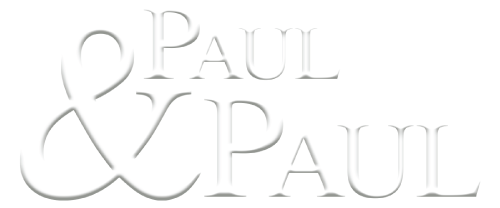If you are thinking of starting your own business, it is crucial to consult a qualified intellectual property attorney. If your business involves an IP having a clear idea of Intellectual Property law is essential.
How IP Lawyers Can Help You With The Complex Aspects of IP Law
If you are thinking of starting your own business, it is crucial to consult a qualified intellectual property attorney. If your business involves an IP, having a clear idea of Intellectual Property law is essential.
You may be wondering, what is intellectual property law? It can be quite a complex field, one which plays a crucial role in protecting your products, technologies, and artistic or creative works. Artistic work can include plays, literature, music, motion pictures, inventions, designs, and more.
There are six types of intellectual property law, which are:
- Copyright law
- Trademark law
- Patent law
- Trade Secret
- Industrial design
- Geographical indications
While actual property law protects physical property, intellectual property protects the use of brands, creative works as well as technical works. International intellectual property rights are problematic and take more time and effort to register than any single patent in the United States because it is likely that the applicant will have to apply to each country individually.
You could face considerable legal challenges while registering your intellectual property.
Why is intellectual property so complex?
While there are certain rules to follow, very few understand it completely. Often attorneys fail to come to an agreement and seek the court’s decision to sort out any dispute.
Intellectual property protection is a serious affair. Any deliberate attempt to violate the exclusive rights of an intellectual property owner can lead to grave consequences – not just financial, but it can also lead to a massive dent in the offender’s reputation.
IP laws fall under the jurisdiction of federal law. Article I, Section 8 of the U.S. Constitution grants Congress the power to endorse innovation by making sure that the creators are granted intellectual property rights through both the U.S. Copyright Office and the U.S. Patent and Trademark Office (USPTO.)
It expects practitioners dependent on third-party L&D materials and content to familiarise themselves with basic guidelines and act conventionally while making decisions about the creation and use of IP.
The bottom line is that if you are using content written by someone else to be part of any kind of published work, you should request permission from the copyright holder. You could also include an attribute that states that you have used the material with prior permission from the copyright holder.
Although IP is the kind of law that was developed to safeguard the fruits of intellectual labor, copyright infringement and patent infringement is an issue that tries to capitalize on ideas and works without giving due credit to the copyright owner or patent owner. The issues, of course, are quite different if it relates to the unauthorized use of your own or your organization’s original materials versus those offered by an external supplier.
The “fair use doctrine” is the IP law that is cited the most often in such situations. This allows limited use of the copyrighted material without the permission of the right-holders. This permission is allowed on the basis that the public is entitled to use portions of the copyrighted material freely if it is for purposes such as – commentary and criticism, news reporting, non-profit educational use, research, and scholarship and parody. So the lines between infringement and fair use are again blurred.
There are four basic factors used to determine if the material is can be permitted for “fair use”:
1. Objective and nature of the usage
The question here is if the intention behind using the copyrighted material to inspire creativity or rationally enrich the public. If its main intent of use is monetary benefit by overriding the purpose of the original, then the usage will not fall under fair use.
2. Type of the copyrighted work
There are certain materials such as facts and ideas that belong in the public domain, which cannot be copyrighted. Ownership of work can only be given to an individual’s expression or thoughts and ideas about the pre-established fact.
3. Quantity and essence
If only a negligible part of the copyrighted original work has been imported into the new work, then a fair use analysis is not even conducted.
4. Effect upon one’s value
The effect that the plagiarised content had on the owner’s ability to utilize his work to the maximum of his ability will also be considered.
While this might seem confusing and complex, a good intellectual property lawyer can provide you with preliminary advice on how to handle the process of registering and protecting the creative value of literary, artistic, and audio-visual work or any other IP Intellectual Property Attorneys are also adept at dealing with any red tape involved in applying to the intellectual property rights registration authorities.
Paul & Paul is Philadelphia’s most accomplished Intellectual Property Law Firm. If you have any questions regarding your legal rights or state laws, we are here to help. We have experience in copyright protection, patent protection, trademark protection, and more. Call us at 866-975-7231 for a free consultation and get all your IP-rights related queries answered.
Intellectual property law resources:
